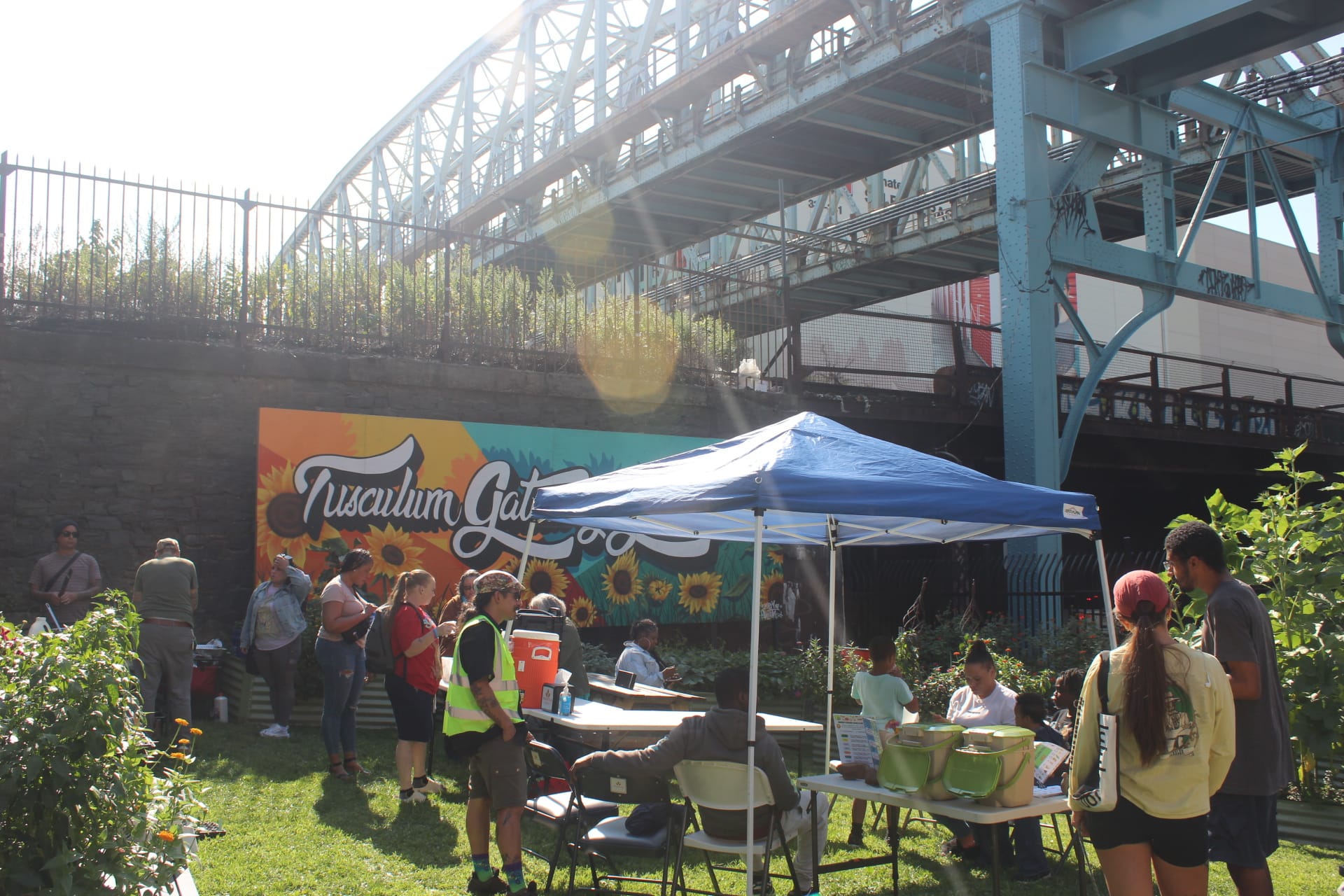Conwell Middle School will no longer close, Philly school district says
The decision to spare the two schools from proposed closures comes after nearly a month of intense community pushback against the district’s sweeping facilities plan.
. Cutting both direct assistance and evidence-based education is like declaring war on the people of Kensington. Food security means more than just access to food.

This story was originally published in Generocity.
Learn more about exemptions to SNAP cuts here.
As a Kensington native, I have lived the reality of food insecurity and have relied on food stamps at multiple stages of my life, including as a child, a college student, and a mother. SNAP was there when we needed it most. It gives stability when everything around you feels uncertain. Today, as the Director of Food Systems at New Kensington Community Development Corporation (NKCDC), I see these struggles every day in the community I’m from and serve in.
The current food system is difficult to navigate. It involves endless application and recertification processes, inconsistent communication, and a maze of requirements that punish people for being poor. By making cuts to SNAP and enforcing new work requirements, and eliminating SNAP-Ed, the federal government is adding more barriers to a community already struggling, which only pushes us deeper into crisis.
Kensington deserves investment, not abandonment. We deserve policies that recognize the dignity and resilience of our community, not cuts that strip away our most basic safety nets. To make matters worse, SNAP-Ed programming — the education and outreach initiative that helps people stretch their benefits, cook healthier meals, and learn skills to sustain their families — has been eliminated. Cutting both direct assistance and evidence-based education is like declaring war on the people of Kensington.
Food security means more than just access to food
Access to food is vital for our bodies and for our souls. Food justice is about being able to get the nourishment we need when we need it. But in Kensington, because of the intersection of challenges neighbors experience, food is purely a means of survival.
To experience food disenfranchisement is to experience trauma. Cuts to SNAP and the elimination of SNAP-Ed deepens the cycle of harm in Kensington. In a neighborhood where families face housing instability, addiction, and systemic disinvestment, removing essential safety nets strips residents of both access to food and the tools to sustain healthier lives. These cuts don’t just reduce resources, they compound generational harm, widen inequities, and undermine community resilience.
Don’t be mistaken — there is food in Kensington; the evidence of this is scattered up and down the neighborhood like tumbleweed: plates, napkins, snack wrappers, and body secretions on sidewalks and caught in seams of the curb. It is the decades of disinvestment that Kensington has experienced that have caused a greater disconnect between people and their food. These conditions limit the residents to pantries, prepared food distributions, convenience stores, and a handful of food businesses that have made a commitment to serve them. However, food justice is not just about the availability of food, but also about folks having the power to make their own choices about what they will eat.

As director of food systems at NKCDC, I am activated by the prospect of a Kensington that is more connected to its food choices and to be part of a movement where Kensington residents have opportunities to heal the current system. I dream of a holistic, culturally relevant, and trauma-informed approach to policies and programs from our federal government that promotes equitable access to healthy food.
SNAP-Ed funding is a critical component of our food systems work and a vital resource for Kensington residents facing food insecurity. It provides culturally relevant, skill-building opportunities that empower families to make healthier choices on a limited budget. The program is deeply integrated into NKCDC’s broader food systems work, connecting nutrition education to urban agriculture, produce and meal kit distributions, garden-based learning, and composting.
Neighbors who often have limited access to the wide array of nutritious foods have tried (and enjoyed!) vegan barbecue, fruit smoothies, bean salad, blueberry caprese, and many other easy-to-prepare healthy food options. Cooking classes have been paired with free meal kits so that participants not only taste the food, but are sent home with the ingredients, knowledge, and tools to prepare it for their families.
SNAP-Ed is distinct in that it is integrated across NKCDC programs, meeting people where they are, whether it be with our housing services, the Cure Violence team, or Community Health Workers, to ensure we address the intersection of challenges residents face. Our team has prepared and served thousands of healthy food tastings in libraries, corner stores, community gardens, churches, and community events. Through SNAP-Ed at NKCDC, community rooms, parks, gardens, and even home kitchens (via virtual group cooking classes) become gathering places where neighbors who too often feel isolated, due to social conditions, share food, stories, and culture, beginning a journey of healing together and within their own households.
In Kensington, a wide variety of economic and social factors, including food, transportation, income, working conditions, social connection, and the physical environment, have a profound impact on the health of individuals and families. When these programs are integrated into one another, they address the social determinants of health and can begin to address the full complement of challenges residents face.
The loss of food systems programming and SNAP-Ed isn’t just about nutrition. It undermines the full realization of interconnected efforts that address the social determinants of health, which is critical when creating effective and sustainable solutions in a neighborhood like Kensington.
Harnessing collaboration and community to move forward
In a community where the rates of diabetes, obesity, and other chronic health issues are high, access to healthy food and to interactive education about growing, preparing, and enjoying healthy meals is lifesaving. The elimination of SNAP-Ed funding will disrupt this interconnected system, weakening efforts to build a resilient, community-led response to hunger, health disparities, and food access in Kensington.
NKCDC has a history of organizing in times of uncertainty and will carry that strength to address the challenges at hand, including the cuts to federal funding and lifesaving and life-sustaining programs, to ensure that neighbors can thrive. Even as we face funding cuts to critical programs like nutrition education, violence prevention, and housing stability, we’re committed to pursuing new partnerships and responding to the community's desires and needs.
Moments of change and crisis are opportunities for realignment, and as an organization, we thrive in greater collaboration. Food is a foundation for good health, well-being, and stability. Now is the time to use this as an opportunity to co-create a new system through a strategic approach that centers community and shifts our mindsets so we can cook up our own justice.
We invite neighbors to engage civically and advocate for food justice, strengthen mutual aid efforts, integrate food and nutrition education into existing services, and leverage shared spaces so that we can sustain health and connection in our community together.
We ask funders, nonprofits, and city partners to stay proactive and work upstream by continuing to invest in the educational component of SNAP as a proven preventive health intervention. There is a path forward if we leverage resources to sustain this kind of work, and the efforts of trusted community anchors and mutual aid networks. In order to support residents in navigating new SNAP requirements, fund and support the efforts of trusted organizations. There are opportunities for greater collaboration to ensure our community can thrive.


Free accountability journalism, community news, & local resources delivered weekly to your inbox.